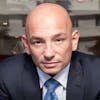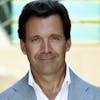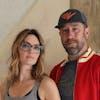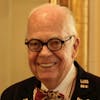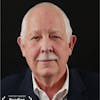How We Built an Extended-Stay Hotel Empire from the Ground Up - Ryan Rivett, My Place Hotels
Extended-stay hotels are one of the hottest segments of hospitality today, and My Place Hotels stands out as a leader in this space. Today, President & CEO Ryan Rivett explains what led him to start the company and what he’s learned over the past 10 years building My Place into the powerhouse it is today.
We’ll learn what Ryan and his team did differently that has worked so well for them, why he focuses on new construction, how he draws from his early childhood experiences of family hospitality to guide how he runs the company today - and much more.
Whether you are looking to see what it takes to create a fresh approach to providing hospitality, looking for the keys to rapid growth - or you’re just interested in the extended-stay hotel model in general - you’re going to learn a lot from this conversation.
- Follow Ryan on LinkedIn
- Visit the My Place Hotels website
- Follow My Place Hotels on LinkedIn
- Follow My Place Hotels on Twitter
- Follow My Place Hotels on Facebook
- Follow My Place Hotels on Instagram
- Follow My Place Hotels on YouTube
If you liked this episode, check out our other brand features here.
Join the conversation on today's episode on the Hospitality Daily LinkedIn page.
Hospitality Daily isn't just a podcast! Every morning - Tuesday through Friday - I summarize the stories you need to know as a hospitality professional in a short email. Read today's issue and subscribe here.
Josiah:
Extended-stay hotels are one of the hottest segments of hospitality today, and My Place Hotels stands out as a leader in this space. Today, President and CEO Ryan Rivet explains what led him to start the company and what he's learned over the past 10 years building My Place into the powerhouse it is today. We'll learn what Ryan and his team did differently that has worked out so well for them, why he focuses on new construction, how he draws from his early childhood experiences of family hospitality to guide how he runs the company today, and much more. Whether you are looking to see what it takes to create a fresh approach to providing hospitality, looking for the keys to rapid growth, or just interested in the extended stay hotel model in general, you're going to learn a lot from this conversation. To set the stage, I've asked Ryan to walk us through his career journey in hospitality. Here he is.
Ryan:
It's been my entire life. The reference of hospitality and being in the hotel business and hotel development has been a conversation around the table and a focal point of family gatherings and things like that for my entire life. As I grew up, that's where I started. I didn't go to work in hotels when I was a teenager and things like that. I worked in restaurants in high school and in college and really enjoyed that part of it. I worked in the kitchen and still love cooking today. My career journey in hospitality really came in my teens and twenties, working in a fishing lodge that we have still today during the summer. That's where I learned how to greet guests when they show up, pay attention to detail of where their bags go, and remember their names as much as possible from year to year as these people are repeat customers. That spirit and the fundamental elements of hospitality at the innkeeper level that's really where I grasp those things. Coming into career hospitality, for me the entry point was construction and development. I was a long way away from the guests in terms of what my role and function was and the company's starting off. I think going back to those experiences as a teenager and in my college years of working in hospitality and working with a unique set of clientele and an upscale resort really helped me to understand the end goal of a hospitality project, even though I was on the front end in the development construction side of it. That was the basis.
Josiah:
I love it. I wonder if I could ask about that experience at the lodge, because I'm always fascinated by how people think about those first few moments when you arrive on the property, you think about a lodge. It's almost like one of the most extreme forms of travel and hospitality, because you're probably traveling a really long way and you might even be more tired than most when you arrive. Do you remember back then, was there anything that you found helpful or useful in terms of greeting someone well and starting their trip off well?
Ryan:
I think we had an advantage in that we're in southeast Alaska, one of the most beautiful places on earth. That in and of itself makes up for any struggle you have with the endurance of a travel day. Then, when people got there, the lodge is on an island. It's in a really unique setting, so you're out and away from everything. I remember people being exceptionally excited when they showed up. I remember them being very particular about a lot of things. For me it became again the attention to detail became the most important thing. I learned pretty quickly that if I greeted somebody at check-in and they told me their name and introduced themselves and then the next morning when they walked into the lodge to get breakfast, I said, hi, Steve, they recognized, I remembered their name and it made a difference. Then the following year, when they came back again, if I could remember their name, that was a really big deal. I think that was a big part of it was introducing yourself to the people as an employee. In my younger years I was just the guy who was carrying bags and cleaning fish. What I think really helped was to quickly interact with people and treat it as if you were showing them around your house. That's really out felt it was hey, welcome to my place. I want to show you a good time.
Josiah:
Just building on that a little bit you've shared in other interviews you've done a little bit about those formative early years for you, working in these hospitality businesses but also at home engaging with entertaining people. It sounds like you grew up in an environment with a lot of that. Were there any things that stood out to you from those early years it could be personally, within your family or professionally that have shaped how you think about hospitality broadly?
Ryan:
Yeah, I think a lot of it for me was that the element of business and the focal point of business wasn't always just serious, it wasn't just numbers and terms and the deadline. That wasn't what was my perspective of hospitality and business in general when I was younger, because where I got exposed to it obviously I wasn't in the office every day and I wasn't working in those times, but what I got exposed to was the holiday parties and the conventions and the franchisee gatherings and things like that, whether it was a hunting trip or a fishing trip or an owner's meeting that for some reason I was able to attend from a very young age and interact with a lot of people that typically I think a kid wouldn't be interacting with. And so for me I saw that business was about how well you could talk to people or how well you can get people's attention. So I think that became my overall perspective of how you do businesses. You engage people and then out of that comes a relationship, that out of that comes an opportunity. I wouldn't have been able to articulate it that way when I was younger but looking back on it, that's what makes sense to me now.
Josiah:
I love it, and you've also said that some of your key early role models were entertainers. Do you mean that in the sense of entertaining at home or more like public figure entertainers?
Ryan:
No, I mean in a sense of entertaining in a group of people, not necessarily at home, but in those same settings, in those same opportunities conferences, conventions, gathering strips, things like that. I just remember there's a lot of people who really intrigued me, whether it was my grandfather, in the way that he would carry a room and tell stories. But I think the entertainers that I could reference the most as I look at my memories of my younger days and earlier parts of my career, and even today for that matter, these are people I really gravitate towards. They're great storytellers and out of that comes the entertainment. But you also find connection through storytelling and I think that's a really big advantage. For people who are capable of just sitting down and telling a story, you can weed through the introductory phase and get into the how do we do things together phase pretty quickly.
Josiah:
And your grandfather, of course, was the founder of Super 8, the incredible hotel brand. You mentioned his ability to carry a room. You talked about storytelling being important to that. Were there any other attributes that just spending time with him, did you notice that helped him in that ability to carry the room and provide that environment for people?
Ryan:
Yeah, certainly being passionate about what you do. I mean, when you live the business that you're in and the profession that you're working to be great at, it's really easy to talk about and so in that, it's not too difficult to captivate people. If you asked him, he would say he never enjoyed public speaking and he wasn't ever any good at it. I don't know that public speaking is all that much fun for me, but in a group of eight or 10 people telling a story and enjoying learning about them, I'm very comfortable, and I saw that he always was too, and a lot of those storytellers that was the biggest attribute that attracted you to them is they're just really comfortable.
Josiah:
I love that and it's always fascinating to watch how different threads connect through our lives, right, and so those early experiences, things that you saw there and people who are listening to the audio won't be able to see this, but we're looking at it just gorgeous trees we were talking about before we started recording the entertainment part of your facility. Tell us a little bit more about that and why did you prioritize that as you thought about your corporate campus?
Ryan:
Yeah, it's always been part of the culture since I was younger. As I said, I mean bringing people into town. We live in Aberdeen, South Dakota. There's a lot of people in the world who have never seen and don't know anything about Aberdeen. You say something about Kansas City or Omaha or other places in the Midwest and they have some frame of reference. But you get more rural, like we are, and it's always surprising. We had a group of people here last week that were from Maryland, Virginia, part of the country, and they'd never been out here before. And so you get those people in here, actually in another group that was from Phoenix, so both sides of the country converging on the middle of the upper Midwest, and they get here and go wow, I thought it was cold here and it was 95 degrees outside. We have a ton of green trees, we have really beautiful landscapes out here, in spite of the fact that it's pretty flat. The fact that it's flat and the fact that we're in the upper Midwest. If you go about 100 yards that way, you can see for probably five miles, because there's hardly any trees either. So it's just a totally different perspective than you get in a lot of areas of the country, and so when we bring people here, it's more than just a meeting, it's an experience, it's an exposure to a culture and a demographic of people that often are very easily perceived to be different than what you find as you head east and west from here. And so in our facilities here we really enjoy bringing people in and having not necessarily a meeting but an opportunity to share meals and tell stories for a couple of days, and that's really the basis for it. So the venue we've got here is a really great spot to do that, both indoors and outdoors. Outdoors in the summer is great here.
Josiah:
I love it. One other element of your career journey I want to touch on you mentioned getting into construction and development. How did that come to be? Were you curious about this, or was it an opportunity that presented itself?
Ryan:
A little bit of both, actually, I'd say naturally. I've been a builder all my life. So going back to Legos when I was a kid, all the way through to, as a teenager, building things around the house or solving problems through figuring out how something works and then replicating it, there's always been a big interest in mine. I think some of that is instilled early on from seeing such a big element of the business that happened around here and a focal point of the conversations being hotel development and this project being built here and how it went together and how the construction company was doing. There were always big parts of it and I'd say all of those things collected together to represent an interest for me. And then the opportunity came along. As I exited college and started into the business, my mentor, my grandfather, pointed me in the direction of you need to start construction. That's where a hotel starts. You make your money when you build something. You build it well, you know how to put it together. Then you know how to maintain it, what it's going to cost and what to expect and what you need to do to make it successful in terms of operations, and so that's where I got directed to and that transitioned into development pretty quickly, and then development and construction go hand in hand and after doing that for several years, and all the other aspects of the business came into my purview as well. But the entry point and probably the place that I love to be the most in terms of day-to-day work is on the construction side.
Josiah:
I love it. And for people who have no context, don't understand this world. How would you describe the difference between development and construction?
Ryan:
So development, you're really working with the concept of. I want to end up with a hotel operation that services guests with hotel rooms and great service. In order to do that, I've got to find a location, I've got to assess the real estate, I've got to go through the processes of evaluating a market, from here's what it's going to cost to here's what it's going to take to support those costs and create a viable investment. So the development aspects are really on the very front end and require a lot of research and development of an idea and taking the risk to put that into play, whereas construction is really the nuts and bolts and mechanics of the design and concept and bringing it to fruition. So I think hotel business and business that deals with tangible assets in general is really unique that way. And then you have those three completely separate components of the theory and concept. That leads to the compilation of materials and labor to create the physical product and then, finally, the service aspect of it is how do I make that tangible asset that I created actually function and create and build value?
Josiah:
Let's talk a little bit about my Place Hotels. What was the opportunity that you saw that led you to found the company?
Ryan:
So, prior to starting My Place, again working in construction and development primarily, we were developing, building and operating hotels of all major brands during the period between Super 8 and my Place and so got a lot of exposure to what's popular in the industry today. Of course, we were going along with the industry trends in terms of the size and scale and brands and objectives of hotels of that day and today as well, and so I think what we found is some of the fundamentals that we could reference back to in Super 8 had really become overtaken by marketing, propaganda, amenities and things that just didn't seem to be productive in terms of being a hotel operator. And so as we looked at that and we looked at the inconsistencies in terms of budget expectations going into a development project, the inconsistencies in terms of support and focus and operations in working with other brands, we said we're not doing bad here. It's been a productive business, we've been successful in the investments that we've made, but I think we could do it better. And how do we do it better, was the question, and so I think that's really the genesis of it. And then Ron saying, hey, I've always wanted to get back into franchising since Super 8. So why don't we give it a try and see what comes out of it? It was relatively simple. I love being a hotelier and we have the ability and the infrastructure to do it. How do we make what we're doing a little bit better and fit more for us, and how do we fill a space that we believed and perceived to be sort of empty in a growing way? So that's where my place came up.
Josiah:
Can you tell me a little bit more around some of the things that you heard from others that were not working with the models from some of the larger brands? You talked a little bit about this of inconsistency of the budgeting development process, the operational support. Is there any other things that you were hearing that the model out there just was a little broken?
Ryan:
Yeah, I think there becomes a lot of focus and emphasis gets put onto lesser elements of the business when the guidance is being handed down from people who don't engage in the three primary elements of the business. Developers are going to have a certain input, contractors are going to have a certain input and priority, and operators are going to have a certain input. You hear a lot of things from operators about how inefficient certain processes or certain amenities or certain programs are and how they could do it a lot better if they weren't bound to participate in those things or go about it. That way. They loved other elements of it, but they didn't like these two or three things. For us and the organization that we have here surrounding my place and has been in existence since the very beginning, is very vertically integrated. We do everything in-house. If I'm focusing on an element of construction for one of our hotels, I have to also consider management and development, because those are elements of my overall business and my day-to-day. You get some imbalances that happen and I think that's where we found them from. Hey, there are too many rooms. We don't need to build 80 to 120 room hotels just to justify land cost. You have to look at the other side of it and say, well, sure, 80 or 120 rooms is great if I can fill 70 or plus percent of them on an average night, but if I'm not going to be able to do that, I'd much rather have a lower room count going in and be able to be more efficient with a smaller inventory, getting rid of some of the ineffective amenities that have become standards of marketing and hospitality pool breakfast, which many of them, coincidentally, we saw almost disappeared during the last few years and it didn't seem to impact the guest experience all that much as a hotel operator. If you're paying attention, you recognize the utilization on those things and you say, geez, with five or 10 or 20 or 50, whatever the number is dollars I'm spending per room I rent to provide those things and the few people that are using them is it really going to impact their stay? There's so many opportunities in the world today for quick service food, for example. Is the food and beverage offering in typical select service hotels really as important as it used to? So some of those questions that we asked ourselves and decided to take the risk in trying out have really panned out pretty well.
Josiah:
Vertical integration is something that seems very efficient. I'm hearing this from different people. I respect a lot, and it seems very attractive to just own that stack of these different parties that could be different companies and just get everyone on the same page. I'm curious what's difficult about operating in this way? What challenges have you found about vertical integration and operating in a vertically integrated way that you had to overcome?
Ryan:
There are quite a few challenges, and I'd say more so than efficiency. Vertical integration creates value and balance, so you get diversification of your daily activities inside of your primary objective. So if it's a slow period for hotel operations, maybe construction has quite a few projects in the pipeline and is doing better, so through that you get a lot of diversification. Another benefit to it is control. You maintain a broader spectrum of control in the investments that you make if you cover more of the basis, if you become the expert in more of the areas that your investment entails. The drawbacks to it, though, are not insignificant either. It takes a lot of infrastructure, and it takes a lot of fundamental capital and support in order to be able to maintain it, and you have to be able to attract good people. You have to find experts in every aspect of your business, so while that's a great thing to have them, it's not always easy to find them, and as a leader in an organization like that, you're definitely challenged to become as knowledgeable and as proficient at every one of those areas as you can, which is not outside of the realm of stressful in a lot of days, requires a lot of ability to take risk, and I think there's a pretty significant element of risk involved in a vertically integrated organization, because you don't shift the responsibility outside at really any point, or there are very few. It's very rewarding, though I wouldn't have it any other way. It's what I was exposed to from very beginning and I really can't say that I know anything else, but I can definitely see from the inside out that there are other ways of going about it that people are very successful at. This is just the right one for us.
Josiah:
I love it and I imagine there's a certain sense of knowing yourself, knowing what you're good at, the people around you are good at, and that takes good judgment right is to operate out of that. I also appreciate you breaking that down. I want to stay on this theme of what you've learned because for me, My Place Hotels is a really interesting story because it's newer than some of the other larger companies out there, but it's not new. New You've been going good 10 or so years. You have critical masks hotels across the country. I imagine a lot of learnings from operating over the past decade. Is there anything else themes or broad learnings that have stood out to you as you reflect back on the past 10 years in terms of how you've seen your model play out?
Ryan:
Yeah, I think one of the most rewarding attributes to My Place at this point is that we have really had to change very little about the design or the concept or the operating model over that initial period of time. I think the thoughtfulness and the knowledge that was input into the concept at the very beginning has really proven out to be sustainable and that's been extremely rewarding. We've obviously changed little things and you're constantly tweaking and constantly growing in your understanding of the product and finding better ways to do things, but it's been really rewarding not to have to change a lot of things. We've learned that that consistency is something that you can have it, but it's very difficult to talk about. I can say, hey, let me tell you how consistent these operations are. Let me tell you what you should be able to rely on in terms of a capital budget or an operating budget in these hotels and people say, oh yeah, that's great, but until they really experience it, they really don't understand. Until they do, I've had franchisees come back after building and operating their first one and say I see what you're talking about now. It really is that substantially different than what has been the focal point in hospitality franchising for so many years that it's an adjustment for sure. I think finding out that we hit on several things and the most fundamental things that were sustainable has been really great. We've also learned that technology is exceptionally important and our ability to identify a need for expanding or modifying technology has been one of the biggest challenges that we'd face over the growth period, or this initial growth period. It's hard to understand how the simple act of renting a room can be so reliant on technology, whether it's from the sales and marketing and reservations aspects of things to the analysis of operations and the minutiae of efficiency management within operations that were so reliant on technology for Building a hotel brand and building. That is not an easy thing to do, but I think it's been relatively easy for us, if that's an appropriate way to characterize it, just because of the amount of forethought and the ability to be nimble. As we've gone through the process, learned a lot about technology and its impact on hotels over this period, learned a lot about what consistency really means in operations and in investment, but really the guess what they're looking for, what makes them happy, keeps them coming back. What's attractive really hasn't changed. I think that's fundamental and we as people, what we're looking for in hotels. Maybe it's a little different from specific resort destination or convention property to another, but when you look at the cross-section of hotels that we find ourselves in, they guessed. Expectations and demands have maintained themselves pretty well.
Josiah:
Interesting. I want to go back to something you mentioned, an observation that you had in the years forming this brand, where, with other brands, operators said that there's a lot of inefficiencies that they saw and things that they could do better. Imagine this is a very challenging thing to balance of the consistency in building this brand model while still being attentive to what your teams on the ground are noticing and opportunities they see for change. As the leader of the company, how do you think about balancing those two things? Do they feel intention or they feel like they're pulling in different directions?
Ryan:
Definitely. I think creating or finding that balance among a team and finding that balance with the support systems and the people desiring to be supported really comes most naturally by asking questions, creating an idea or creating an objective and then going and pushing it out there for people to try doesn't necessarily work unless, prior to doing those things, you've gone out and asked enough people how is this working for you? What would this look like if you tried this differently? Have you tried this and this and that in order to see where it works? People are creatures of habit, right? Unless you challenge them to change something that they're doing, they don't necessarily change it. Asking those questions really expands the purview of people on both sides, as you kind of. It doesn't always happen, but when you find people on both sides of that equation that are willing to expand their purview and say, oh yeah, maybe I could try that, you find them coming a lot closer together. If I have somebody on the support side that says here's how we need to do it and I'm telling all these people that they need to do it this way and they're not, what's happening, I say well, have you engaged them by asking them what they think about what you're saying. The conflict is really when it's binary. When that relationship is binary, it doesn't work. It breeds that conflict. You really have to create a multi-dimensional engagement in order to try new things and see what works and quickly move out of them when they don't.
Josiah:
Zooming out for a moment. If you look at a map of your hotel's beautiful communities across America, right, but very diverse communities, right? Just all different parts of our country. I'm curious what you've seen on the opportunity for your hotels to create economic activity in the communities that they operate within. How are they part of that larger story of these communities growing and expanding and doing well?
Ryan:
It's really difficult to identify broad and general ways because a hotel is really designed as a support. It's not necessarily the frontrunner in economic development in a hotel. It supports economic development right and a lot of the smaller communities we've gone into we found that our hotel going in was the first extended stay built in the town and what that precipitated was the road construction crews or the plant manufacturing crews or the survey crew that came through for a municipal project now were willing to stay there because they had a better option that allowed them to stay for an extended period of time as opposed to staying 20, 30, 40, 50 miles away in the next bigger community. That had something for them. So some of those aspects of us going into a community have been really rewarding to see. Oftentimes it's about the people that are in the community and finding opportunities for them. A person who's been an assistant manager in a fast food restaurant for the last five years but hasn't had the ability to move up within that and there really isn't a good landscape of finding that next step that may be a good opportunity to come in and become a manager at a My Place Hotel, move on beyond that to a regional director of operations or director of marketing and sales whatever they're inclined to and really pull people up from where they come from by just becoming part of the community and creating those opportunities for individuals.
Josiah:
That's an exciting thing to think about and sort of related to that, but a little different way to think about that. When you're building a hotel, you're essentially making a bet on that community and its growth prospects. I'm curious how you, your teams, your partners, people you work with should be thinking about that. What are some of the factors that you think about that lead you to believe this is a good opportunity for our next hotel A?
Ryan:
big question that's asked on the very front end of a development and should be asked by everybody, regardless of what hotel brand it is, is what is this street, what is this neighborhood, this community or city going to look like in 10 years? Where's the overall plan? That's a big question we ask ourselves. Now sometimes it's a lot easier to see than others. You have heavy development happening in a lot of places around the country. Economic improvement and incentives that have created strong development demand, or just growing populations in places like Phoenix or Dallas or Sioux Falls South Dakota for that matter Really make it easier to see where the community is heading. What kind of prioritization is happening with respect to infrastructure, attracting business, attracting leisure, attracting entertainment? In the smaller communities it's a lot more difficult to see and what you really have to look for is where's the consistency? How consistent have they been? Have they been a boom and bust community or have they really been a pretty confident, slow growth, stability type of market? Both are very viable and both have proven to be very successful over the years, but there's a different approach in each one of those too. The idea that you don't just go in and say how well is the hotel? What does the star report look like in any given market? What are the competitors, how do they look and when is Amazon moving in, or something like that? You can't just ask those granular and very pinpointed questions. You have to ask the overall questions of what, overall, does this community look like? If I'm going to own this thing for the next 40 years, what should I expect and how should I program my investment? Some people leave that part of it out. They focused on very narrow short term and a lot of developments and a lot of investors that work with us and in other places are focused on three to five years and they want to keep moving. But regardless of that, there's always a potential that you might have it for longer. So make sure that you're doing it the right way.
Josiah:
I love it. As you think about moving the business forward, I'm curious where you look for inspiration. What inspires you and gives you fresh ideas and excitement on taking this business forward?
Ryan:
Really the same thing that pushed in the beginning to try it is how do we continue to make this better? We're constantly looking at how do we change the operating model, how do we change the staffing model, how do we create better careers for the people in the hotels, which means that we get more consistency out of the service model and out of the care and maintenance of the properties. We're constantly looking at how do we reconfigure a hotel room or reconfigure a space inside of a hotel room in order to make it more functional or more attractive or more functional and attractive. Those sorts of things are great opportunities and they're really the best element of stimulus for moving forward for us. We have franchisees come in and every new franchisee that comes in has got some idea about something that should be different. It's funny because people buy into a 20-year relationship and take the reins on investing millions of dollars into this relationship and they immediately want to find something that they can change about it. I've never quite understood that, but I guess it is the way it is. It'd be like taking a pair of Nikes for running and immediately going and filing down those sole because you wanted them to be a millimeter thinner. Come on, it's made for a specific purpose. Having said all that, there are a lot of people who come in with some really great ideas who have influenced the refinement, growth, and maturity of My Place. I think that's another element that really is a motivating and driving factor for us is that maybe the next person that comes in has something that adds just this much to a concept we've been working on for a while and we just hadn't gotten there. Every new relationship we create turns into a broadened perspective on the business that we're in and where we're headed.
Josiah:
I think everything from the way that you started your own career to the way that you built your campus is very oriented around having these sort of conversations. Your extended time you talked about flying people in to visit spend a few days together, talk about things at length. That's, I think, where some real information sharing can happen. Both ways. You're maybe getting some ideas from them, but you're also able to share what you've learned with them and share the vision of what's possible.
Most Popular Episodes
Check these out:






